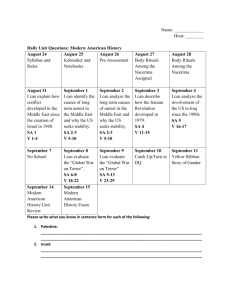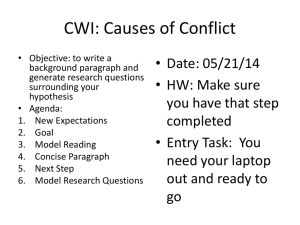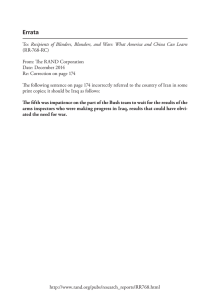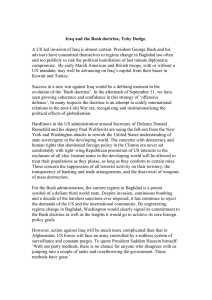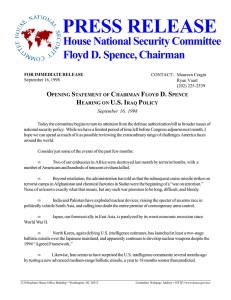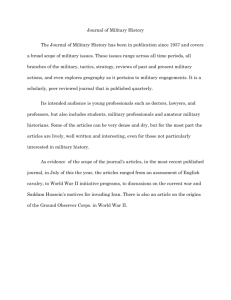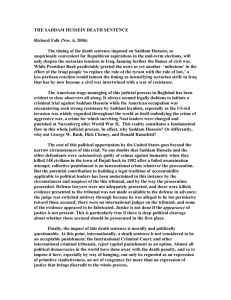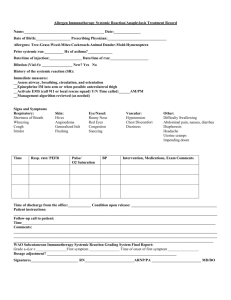Levels of Analysis 1
advertisement
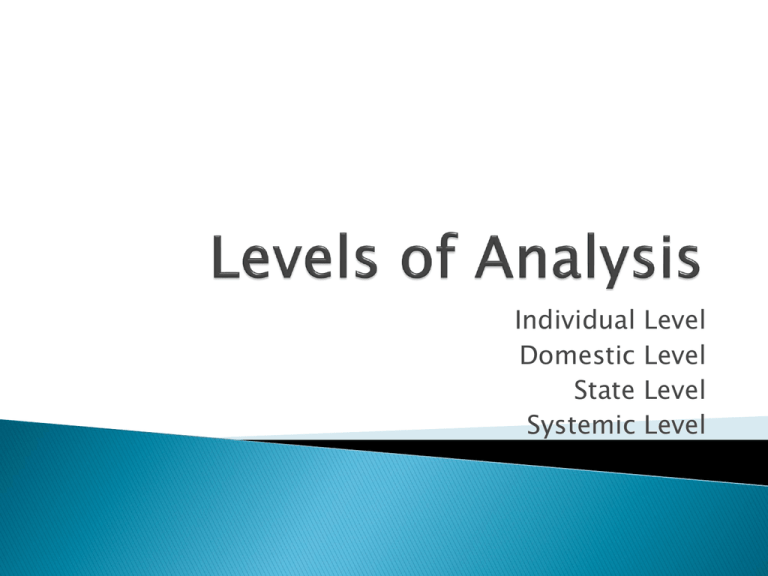
Individual Domestic State Systemic Level Level Level Level A level of analysis is a level that you study world politics at. Any analytical model – offer promise of reliable prediction There are four levels of analysis. Individual level- at this level you are looking at the interactions between individuals (micro level analysis) For ex: analysis of individual’s speeches or biographies to understand their decision making. individuals’ characters, personality, psychology, ideology & beliefs Societal/Domestic level: looking at domestic issues to analyze state’s behavior nationalism &/or ethnic conflict, public opinion & political parties & party systems, & other domestic coalitions State level -looking at the interactions between states as actors. the power distribution, changes to balance of power, formation & breakdown of alliances, For ex: study of relations between Germany and France Systemic level - looking at the world as a whole (macro level analysis) total picture of international relations North-South gap, World environment, Technological change, Information revolution For ex: analysis of global relations and issues (UN, NATO). Individual Level: Evil human nature and desire to have power G.W. Bush desire to be hegemon in the region/world State Level: survival of the state/military superiority/rational actors/war is inevitable Threat of Saddam to U.S security U.S aimed to achieve security (national interest of the state) Systemic Level: international system is characterized as being anarchic as there is the absence of a central authority anarchic structure UN failure to handle situation, ineffective to convince Saddam to cooperate on WMD Preemptive strike was the only option Individual Level: good human nature/human rights/ rule of law/diplomacy Bush aimed to prevent human right violation in Iraq (Saddam used chemical weapons to his own people) and bring democracy to Iraq State Level: state cooperation/ free trade/ States cooperate to achieve common interest (harmony of interest) U.S example of liberal state/universality of its values spread the liberal norms and values of free trade, freedom of human rights, democracy, nation building Difficulties to convince Saddam with diplomacy Systemic Level: accept the fact of anarch in international system but believes that conflicts can be solved/reduced through cooperation among states and the establishment of international law United Nations which is seen as a de facto supreme organization that coordinates the affairs of states Security Council of the UN did not pass second resolution to use of force in Iraq It can be argued that UNSC did best it can do to stop war as an institution



